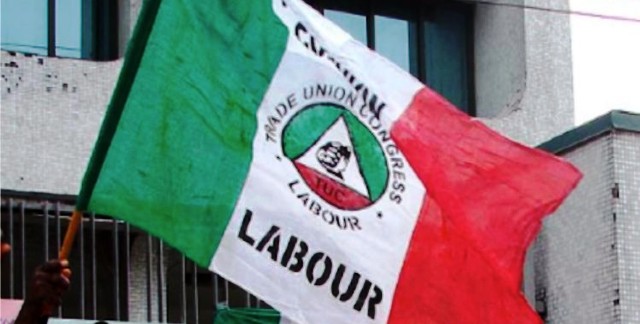Editorial
Wanted: A Living Wage For Workers

On May 24, 2017, the Federal Executive Council (FEC) approved a 29-member national minimum wage committee to negotiate with labour unions and work out a new minimum wage for workers in the country, after accepting the report of the joint committee set up by Federal Government.
Labour Minister, Dr. Chris Ngige who announced this at the end of the FEC meeting chaired by Acting President, Prof Yemi Osinbajo, explained that the issue of a national minimum wage was a constitutional one.
The Tide recalls that the current N18,000 minimum wage was signed into law in 2011 by former President Goodluck Jonathan, mandating a five-year life span, which elapsed in August, 2016 and has since called for a review.
Before the FEC’s decision, last week, a 16-man committee and another 29-man joint committee were set up, last year, to come up with a new minimum wage.
Meanwhile, the two major labour platforms: the Nigeria Labour Congress (NLC) and the Trade Union Congress (TUC), had tabled a minimum wage of N56,000 to a joint committee set up by the Federal Government to harmonise the demands of workers.
The Tide agrees that the implementation of a new minimum wage that represents a good living wage for workers in this country has been long overdue. We reckon that the review of the minimum wage, being a constitutional matter, and the five-year life span of the current N18,000 minimum wage, having elapsed in August 2016, makes it critical and expeditious.
The demand for a new minimum wage is even more imperative now in the face of high inflationary rate and economic realities that leave most Nigerian families in perpetual penury, anguish and suffering. In fact, most workers have been unable to afford a decent single meal, let alone three square meals per day, or even good accommodation for themselves and their families.
While we frown at the docile attitude of NLC and TUC in commencing the review of the minimum wage before it expired in August 2016, we regret that the Nigerian worker has, over the years, bore the burden of often increasing cost of living occasioned by persistent inflation.
This is why we applaud the constitution of the 29-man committee to fix a new national minimum wage for the Nigerian worker.
The Tide urges the committee, and indeed, all stakeholders, to synergise and expedite action towards arriving at an acceptable and workable living wage for workers in the country.
We also appeal to the Federal Government to, as a matter of deliberate policy, take decisive steps to approve and implement the new minimum wage, when submitted by the committee, without delay.
We charge the Federal Government to also review upward, the revenue sharing formula in favour of the states and local government councils, to enable them pay workers salaries, and avoid the present ugly trend where some states and LG councils have had to suffocate to pay their workers.
We also insist that governments at all levels must intensify efforts at diversifying their economies to create opportunities for increased revenue base to off-set government’s financial obligations to workers and the citizenry in general.
We believe this is the only way Nigerian workers can benefit from the dividends of democracy.
Editorial
As NDG Ends Season 2

Editorial
Beginning A New Dawn At RSNC

Editorial
Sustaining OBALGA’s Ban On Street Trading

-

 News3 days ago
News3 days agoAmend Constitution To Accommodate State Police, Tinubu Tells Senators
-

 Politics3 days ago
Politics3 days agoSenate Urges Tinubu To Sack CAC Boss
-

 News3 days ago
News3 days agoDisu Takes Over As New IGP …Declares Total War On Corruption, Impunity
-
Business3 days ago
President Tinubu Extends Raw Shea Nuts Export Ban To 2027
-
Business3 days ago
Crisis Response: EU-project Delivers New Vet. Clinic To Katsina Govt.
-
Business3 days ago
President Tinubu Approves Extension Ban On Raw Shea Nut Export
-
Sports3 days ago
NDG: Rivers Coach Appeal To NDDC In Talent Discovery
-
Rivers3 days ago
Etche Clan Urges Govt On Chieftaincy Recognition

